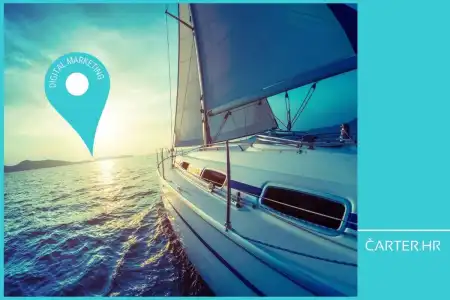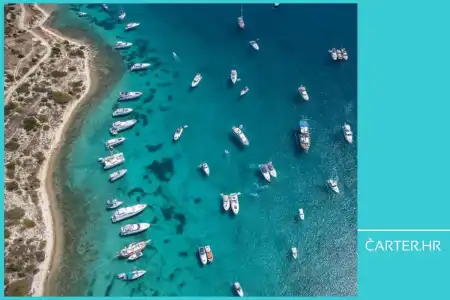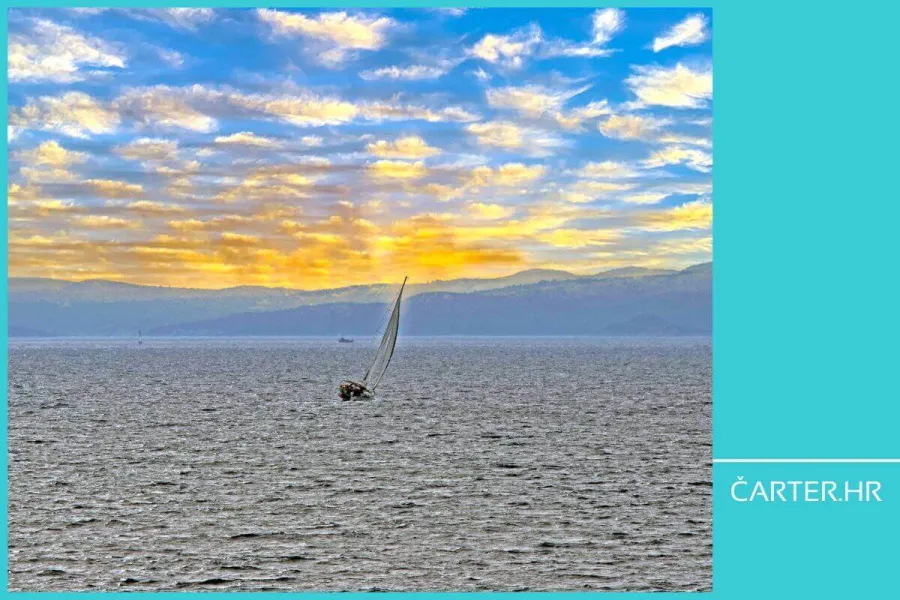
- 03.09.2024.
- News, Regulations, Finances
This summer has brought more fiscal "surprises" and economic challenges than ever, and once again, Croatian media have waged their battle against tourism. In his latest article, Ivica Žuro discusses why congestion, taxes, and short-sighted decisions are under fire, how the global crisis and rising costs threaten the survival of the nautical charter industry, and what awaits us if we continue down the same path.
One of the three most famous Chinese curses says, "May you live in interesting times."
As far as we're concerned, it's right on target.
This has been one of the hottest summers, not just in terms of temperature but also due to a series of events, market shifts, fiscal announcements from a state that's never satisfied… and everything else that makes up the daily business grind.
One of the few media scenes that wage war against its own tourism—exceptions aside—is the Croatian one, and this is nothing new. What would be new is if, at the end of each season, printed and online media headlined with "We were wrong to attack tourism this summer."
When the season arrives, so do media attacks on tourism
Every year, as early as June, the bombardment begins with news about costs, accompanied by social media posts.
Then, on June 28th or 29th, comparisons of fiscal data from last year and now follow, with analyses of why the receipt amounts are up or down by a few tenths of a percent.
After that, the attacks on crowds and private accommodation started, as if they alone were to blame—presumably, tourists would arrive by spaceship if they were headed to hotels and resorts.
By late July, with interest groups moving to the Adriatic, the story dies down, with the occasional genuinely insightful analysis from experts. The only thing left to see in mass media is that there are places on the coast where people live, people who make a living there, pay taxes and utility bills, educate their children, and try to improve their communities.
When it comes to the season, one could say that, overall, it's slightly better than last year's, with some caveats for certain types of tourism. Mathematics is everything, and it shows that this year, overall fiscalization has increased, with all counties recording revenue growth in sectors directly related to tourism—retail, food and drink services, and accommodation activities.
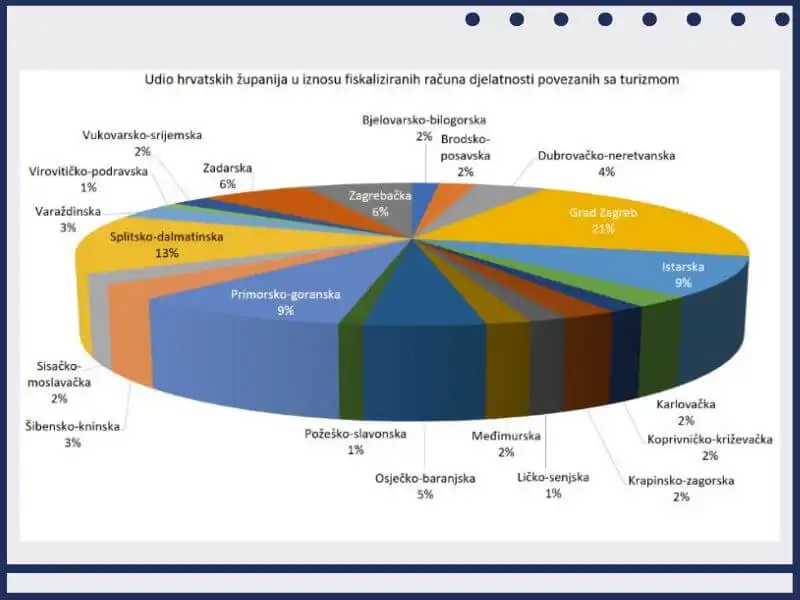
Better results? Yes, but not for everyone.
Overall, the situation is far from the disaster some short-sighted opinion-makers predict.
Did we mention taxes? In the context of this scorching summer?
Croatia has been achieving surpluses in tax budget revenues for years, and based on this, along with recommendations from various business clubs, the EU has advised reducing tax burdens for both citizens and the business sector.
The savings implemented over the years amount to hundreds of millions of euros, with a new set of measures introduced annually as part of this initiative. Therefore, the introduction of any new tax is a matter of common sense and goodwill—or rather, a lack thereof.
Populism, the culture of complaining, and our third national sport
But there's little that domestic politicians and journalists love more than populism.
The potential property tax is a popular topic for debate, especially since it's been rumoured for a long time but has yet to be officially announced. Besides soccer and water polo, our third national sport is having an opinion even when we don't have a clue… All it takes is a trial balloon, and a heated debate ensues.
Additionally, while Croatian citizens have long left socialism behind, socialism hasn't entirely left them. Even today, people publicly frown upon those who succeed in business, expand, hire others, and move forward.
There's also the culture of complaining, even when no one asks. Centuries of foreign rule have instilled a sort of defence mechanism in our people—complain and cry about everything, as it once helped avoid Turkish oppression or the Venetian and Habsburg requisition of livestock for the military. The logic is simple: if someone is miserable, they're of no use; they can't even help themselves, so what good are they?
But it's much harder to change others than to change oneself, so the direction of action is clear.
It's often said that the market will take care of itself, which generally holds true, but what's the benefit for someone who has worked honestly and diligently only to struggle on the brink of collapse for years due to external factors?
This is particularly true for the nautical charter sector, which has recorded individually worse financial results this year, and for a number of reasons. Let's go over them.
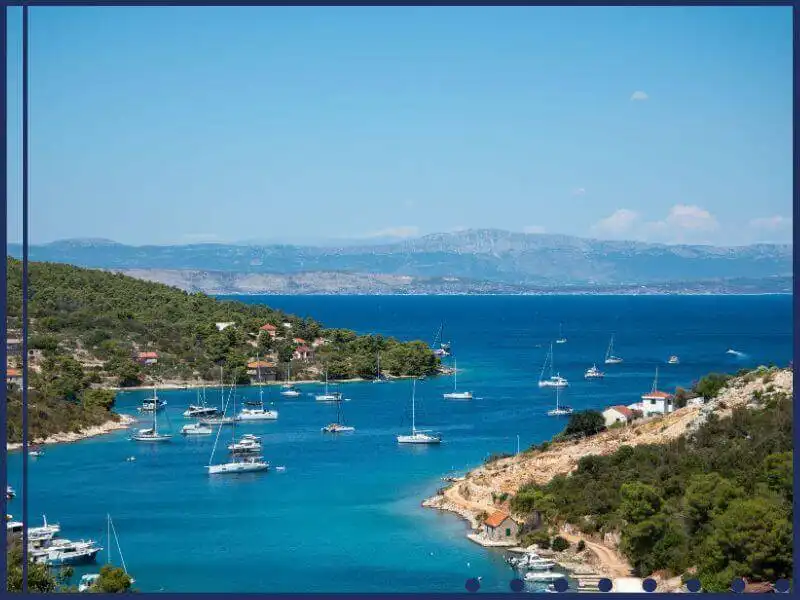
Crisis in the Mediterranean (!?)
This sector in the Mediterranean is experiencing a crisis that's spilling over to us. Similar experiences are felt in Greece, Turkey, Italy, and France. With increasingly hotter summers and economic realities, German sailors are turning more frequently to the Baltic and northern Europe.
The economic situation in Germany is such that the average citizen is most afraid and worried about rising living costs, resulting from various economic and political moves by one of the world's leading powers. Exports stagnate while costs rise, making it more logical to sail Viking and Hanseatic routes than from bay to bay full of sun and turquoise seas.
Charter boats are becoming more well-equipped but also significantly more expensive, not just compared to 15 years ago but even just before the pandemic.
Major events like the Euro Cup in soccer and the Olympics have impacted global tourism. Some tourists opted to visit Germany or France, and in the spirit of the old saying, "If you want to eat, sleep, and watch, it costs," their vacation budget was spent there, not on the Mediterranean. Especially not in the Mediterranean as it once was.
Since no technology has yet been invented that allows a person to be in multiple places at once—unless we're talking about a political candidate running for office—those who could afford both events and vacations regardless of cost were prevented from being in both places for most of the high season.
How sustainable is the uncontrolled supply growth (and even more uncontrolled growth of costs)?
Moreover, like villas with pools, there has been uncontrolled growth in capacity on the supply side. Just in nautical charters, there are over 2,000 new vessels this year, and the entire fleet is being offered to guests with increasingly lower purchasing power.
The state isn't too concerned about this, as it only cares that fees and levies are paid.
This poses a significant risk to the quality of the entire story because lower income means less money for maintenance.
The cost of labour has increased by 50% in the last two years, and the yacht charter sector is increasingly struggling to prevent people from leaving for jobs as day trip skippers or for renting jet skis and similar services on beaches.
Another factor affecting results is the constant rise in fixed costs for services provided by marinas.
In just the last two years, marinas have increased service prices by 20%, and various fees have also risen by the same amount. A unilateral policy is in place here, where the growing supply of charter boats and the lack of moorings means that the sentiment is: "If you don't pay, someone else will."
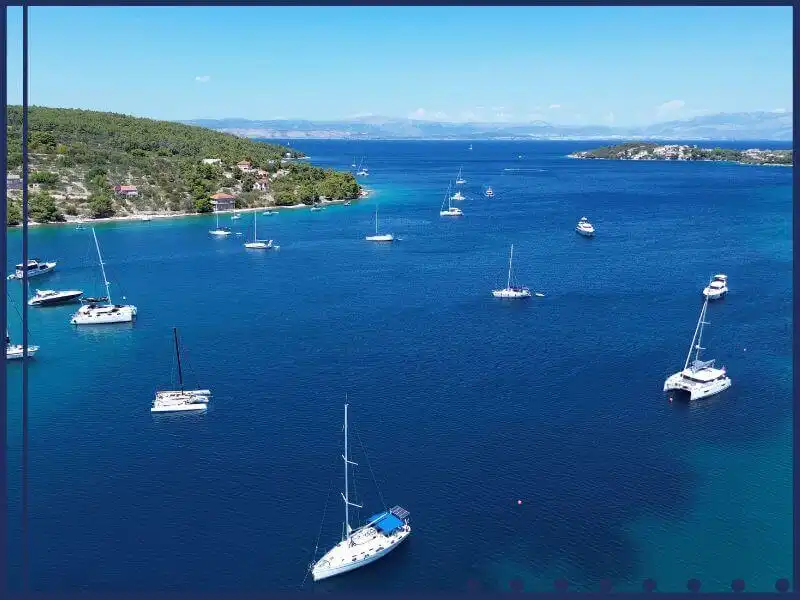
Doing the same thing over and over while expecting a better outcome...?
The general rise in the cost of hospitality services across nautical destinations on the Adriatic has taken its toll.
This is also reflected in a concrete fact—many yacht charter companies report that gas cylinders on boats are being changed much more frequently compared to a few years ago.
Guests are cooking on the boat instead of eating out.
Who will survive in these conditions?
Those who don't have the costs of managing rented boats or who aren't burdened with debt, ideally, if they have neither.
There's room for a turnaround. It's better to make it after a season that didn't deliver the expected results.
The mark of a lack of intelligence is doing things the same way repeatedly and expecting a better outcome.
Therefore, if we continue as we have, it can only get worse.
Categories of trends
- News
- Sale
- Marketing
- SEO
- Web design
- Social media
- Technology
- Regulations
- Management
- Education
- Finances
- User experience
Newsletter
Sign up for the newsletter and receive the latest trends and tips straight to your inbox

